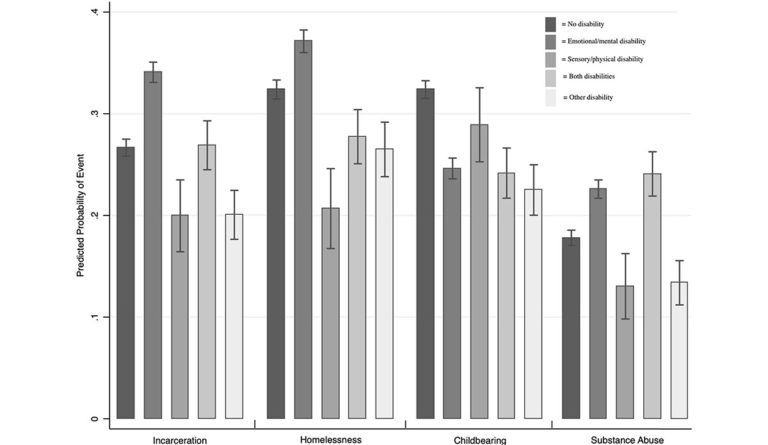Aging Out into Adulthood
A researcher examined how disability among children aging out of the foster care system affects their likelihood of experiencing incarceration, homelessness, childbearing, and substance misuse.

Read Time: 2 minutes
Published:
More than 400,000 children are in the foster care system on any given day. Approximately 20% of these children age out of the foster care system without being reunited with their families. Aging out occurs when the children turn 18, or 21, depending on the state, after which the foster care system does not support them. This transition into adulthood is hard for every child, but it becomes particularly difficult for children with disabilities, as they are more likely not to have graduated high school, not be enrolled in post high school education, and to have low self-esteem.
Erin McCauley examined how disability among children aging out of the foster care system affects their likelihood of experiencing incarceration, homelessness, childbearing, and substance misuse. They conducted this study using data from the National Data Archive on Child Abuse and Neglect.
The researchers found that having an emotional or mental disability is associated with higher risk of incarceration, homelessness, and to a lesser extent, substance use problems. They did not find a similar association for a physical disability. The authors also noted a lower probability of childbearing for children with disabilities.
As children transition into adulthood, they have to learn to navigate healthcare, employment, secondary education, and to manage and independent living. Providing children with disabilities in the foster care system with educational programs specifically designed for them might result in an easier transition to these next developmental steps.
Erin McCauley, Differential risks: How disability shapes risk in the transition to adulthood for youth who age out of foster care. Children and Youth Services Review, 2021.



